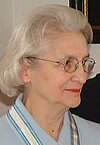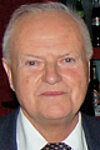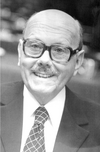Honorary Citizens
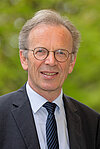
Prof. Dr. Martin Lohse (*1956), appointed 2024
The title of Honorary Citizen was awarded to the former Head of the Department of Pharmacology and Toxicology and former JMU Vice President for Research (2009-2015), Professor Martin Lohse, in recognition of his outstanding services to the university. Lohse played a leading role in recruiting the Rudolf Virchow Center (DFG Research Center for Experimental Biomedicine) as a national center of excellence for JMU and headed it from 2001 to 2016. From 2003 to 2016, he was the founding director of the university's graduate schools; together with Professor Jörg Hacker, he developed the concept for the Max Planck Research Group for Systems Immunology at JMU. The renowned pharmacologist has received numerous high-ranking awards for his scientific achievements, including a Leibniz Prize from the DFG and an ERC Advanced Grant.

Prof. Dr. Ulrike Holzgrabe (*1956), appointed 2023
After studying chemistry and pharmacy in Marburg and Kiel, Ulrike Holzgrabe received her doctorate in 1983 from Kiel University (CAU), where she habilitated in 1989. In the fall of 1990, she accepted a call to the Rheinische Friedrich-Wilhelms-Universität Bonn. In 1998, she declined two calls to Tübingen and Münster and instead came to Würzburg in 1999 to take up the Chair of Pharmaceutical and Medicinal Chemistry at JMU. As for now, she was the first and only woman to hold the office of Dean of the Faculty of Chemistry and Pharmacy from 2009-2011, and on October 1, 2018, she was elected Vice President for the areas of study and teaching, teacher training and teacher training programs. As a founding and board member of the Siebold-Collegium Institute for Advanced Studies (SCIAS), she plays a crucial role for JMU in international and interdisciplinary exchange. In addition to her outstanding scientific achievements, which are underlined by the awarding of numerous prizes, Ulrike Holzgrabe not only made herself indispensable in the field of teaching and university management, but also gave significant impetus to the Faculty of Chemistry and Pharmacy, especially during the major move in 2009. The award of the Bavarian Order of Merit 2019 honored her tireless commitment to students, the university, science, and society.
Dr. Dr. h.c. Adolf Bauer, Altbügermeister der Stadt Würzburg (*1945), appointed 2021
Even during his active time at the Catholic University Community in Würzburg, the doctor of social sciences and economics was involved in working groups for people with disabilities, for foreign students, for student housing and for student childcare. His entire life was and is characterized by a high degree of social commitment, through the supervision and establishment of numerous foundations, including the Dr. Adolf and Doris Bauer Foundation, founded in 2018, in the function as a city council member, honorary 2nd mayor and shortly thereafter acting mayor of the city of Würzburg, and also as a member of numerous clubs and associations, often in a leading position, as well as in a variety of local and supra-local committees, he drove a wide variety of projects in the social, cultural and scientific fields. He has special ties to JMU, and was actively involved in the campus expansion at Hubland Nord, the twinning of Salamanca and Caen, the expansion of the hospital and family-friendliness, and was a major advocate for foreign students, technology transfer and the construction of Haus Shalom Europa.
Marion Schäfer-Blake, Altbürgermeisterin der Stadt Würzburg (*1952), appointed 2021
As chairwoman of the Arbeitsgemeinschaft sozialdemokratischer Frauen (AsF) in the Würzburg subdistrict, member of the Würzburg district council and city council for the SPD, deputy chairwoman of the SPD parliamentary group, 3 mayor and member of numerous commissions, committees and associations, she campaigned over many years with great commitment and personal interest for teacher training as well as for diversity and inclusion and championed the interests of the Alma Julia in the city council. In particular, after the American forces announced their withdrawal from Würzburg, she initiated and accompanied the conversion of the former Leighton Barracks, from which the Hubland-Nord university campus emerged, in a joint effort by the state government, members of the regional parliament, the government of Lower Franconia, the city and building authorities.
Generaloberin Schwester M. Monika Edinger CSR, Kongregation der Schwestern des Erlösers (*1967), appointed 2021
After completing her master's degree in education and theology at the JMU, Sr. Monika founded and directed the "Geistliche Jugend- und Familienbegegnung Wirbelwind" (Spiritual Youth and Family Encounter "Whirlwind") in Bad Kissingen starting in 2000 and took on the task of deanery family chaplain in the deanery of Bad Kissingen. A special focus of her work in the meeting facility, which moved to Steinbachtal in Würzburg in 2011, was, in addition to pastoral and educational outreach to youth and families, the establishment of a wide-ranging program to promote spiritual life and personal faith experience. Her work as superior general has included a special focus on expanding international outreach, transitioning to renewable energy and environmentally conscious strategies in congregational facilities, and special care for vulnerable refugees. In merging the chairs and facilities of the Faculty of Catholic Theology at the University of Würzburg, Monika Edinger served as a driving force.
Prof. Dr. Phuoc Tran-Gia (1953-2023), appointed 2020
For 33 years, Prof. Phuoc Tran-Gia worked at the University of Würzburg as chair of the Department of Computer Science III and lecturer. As Vice President of JMU from 2015 to 2018, he contributed to internationalization, information technology and public relations with great commitment. He is also a co-founder of several international companies and a recipient of the Fred W. Ellersich Prize from the IEEE Communications Society, the Arne Jensen Lifetime Award from the ITC, and the Robert Piloty Prize from the University of Darmstadt. His awards honor his many years of work and impact in information technology.
Prof. Dr. Wolfgang Riedel (*1952), appointed 2020
After completing his studies at JMU, Prof. Dr. Riedel served as founding dean of the Faculty of Humanities from 2007, which owes its realignment to him to a large extent. As a member of the university management and full-time and then honorary vice-president, he was strongly committed to the elaboration of the Bologna reform and the teacher training program at the University of Würburg, which was changed in the course of this. He is also a visiting professor in Sarajevo and, since 2019, senior professor of Modern German Literature and the History of Ideas at JMU.
Prof. Erich Oetheimer (1928-2024), appointed 2018
Shaped by his American war captivity he fought for peace and understanding among nations all of his life. In more than three decades as a professor of German language and literature, history and philosophy at the University of Caen, he laid the foundation for the German-French exchange until the signing of the town twinning in 1962, as well as the partnership agreement between the universities in 1977. For his strong commitment he was honored with i.a. the Order of Merit of the Federal Republic of Germany and the silver “Bene Merenti” medal.
Jean Marc Ayrault (*1950), appointed 2013
Former Prime Minister of France. Jean-Marc Ayrault studied German Language and Literature at Nantes University and was an exchange student at the University of Würzburg in the autumn term of 1969/70. During his visit to Würzburg in April 2013, he was awarded honorary citizenship in recognition of his merits to the German language and his close ties to the University of Würzburg.
Prof. Dr. Jochen Fricke (*1938), appointed 2012
Prof. Jochen Fricke has been a Professor of Physics at the University of Würzburg since 1975. From 1992 to 2005, he took on additional responsibility as Founding Spokesman, Chairman of the Board and Head of the Center for Applied Energy Research Würzburg (ZAE Bayern). In permanent cooperation with the Institute of Physics since 1993, the Center can look back on a series of successes including the development of high-performance vaccuum insulation panels and the installation of a desalination plant in Oman.
Otto G. Schäfer (1937-2017), appointed 2011
Member of the Universitätsbund since the early 1980s, and an active member of Würzburg’s Alumni Lawyers since 2007. Otto G. Schäfer awards the Wolfgang Kuhlen-Prize to the best graduates of the First State Examination in Law. The bestowal of this prize, which comes with €3,000 in funding, has been a permanent part of the exam celebrations of the Faculty of Law for years.
Prof. Dr. Sabina Wullstein (*1934), appointed 2003
She started to work at the University of Würzburg as a physician in 1964. From 1984 onwards, she was Professor of Ear, Nose, and Throat Medicine. Together with her husband, Professor Horst L. Wullstein, she supported the University in the purchase of the Hubland property. She was also involved in the conceptual development of the Head Clinic. After her husband had passed away, she ran his private clinic at Oberer Neubergweg, then deeded it to the University in 1991. Today, the Institute of the History of Medicine is located on the premises.
Dr. Jost Lemmerich (1929-2018), appointed 1995
For the design and implementation of the exhibition commemorating the 100-year anniversary of the discovery of the X-rays (1995). Lemmerich, born 1929 in Berlin, studied physics at the Technische Universität Berlin from 1956 to 1962. Later, he worked for various industrial companies and at the German and the European Patent Office in Berlin. The Technical University of his hometown awarded him an honorary doctorate in 1996. At the University of Würzburg, he organised an exposition on the work of the 13 Würzburg Nobel Laureates.
Dr. Walter Brod (1912-2010), appointed 1992
Physician, long-term unsalaried head of the Institute of University and Student History and the History of Science, patron with close ties to the University. He endowed the university library with his unique collection of views of the City of Würzburg on permanent loan and provided the Institute of History and the Institute of the History of Medicine with literature. The Martin von Wagner Museum was bestowed by Dr. Brod with graphic folios, two Flemish panel paintings and other valuable items on permanent loan.




![[Translate to Englisch:] Nobelpreis Röntgen Ausschnitt](/fileadmin/_processed_/8/4/csm_Nobelpreis_Ausschnitt_cbf91ddcc5.jpg)
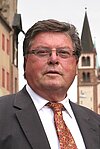
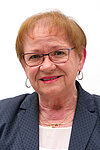
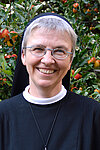

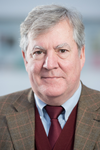
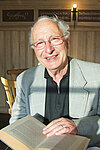
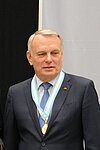
![[Translate to Englisch:] Jochen Fricke -](/fileadmin/_processed_/0/a/csm_Fricke_28ed98e11b.jpg)

